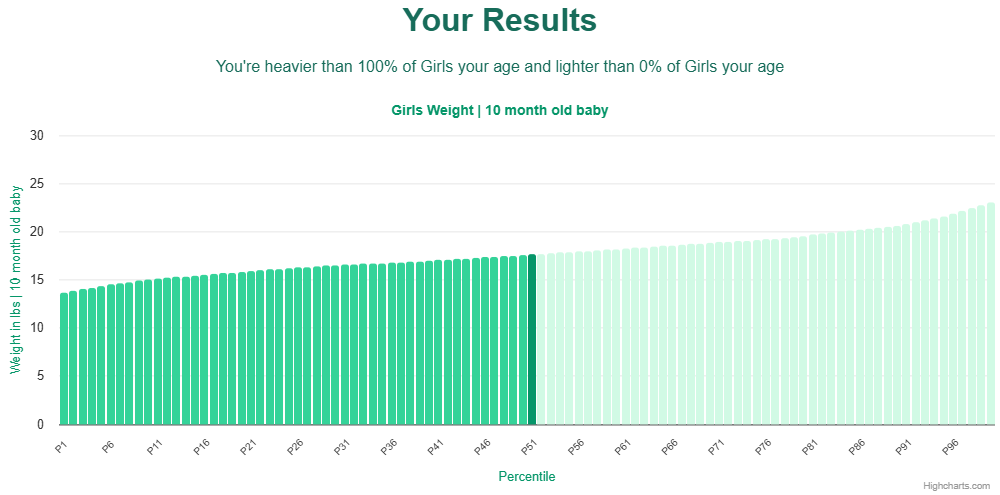Girls Weight chart in lbs for babies 10 month old baby

General Summary: 10 month old baby girls weight
In most cases, weight measurements for 10 month old baby girls will be in the range between 15 and 23 lbs. The average weight for 10 month old baby girls is 18 lbs, according to the CDC and anonymized data from users.
All Results
Enter your weight measurements above to see how they compare
So far, we have recorded [0] weight measurements for 10-month-old-baby girls on LifeMeasure!
(chart updates daily)
See more ages